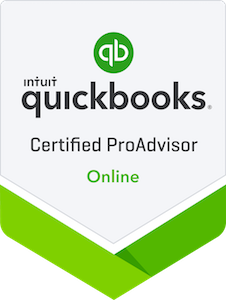Starting a Business
Do you want to open a business?, You need to choose what type of business is perfect for you. You can find the business entity comparison chart for help you to decide.
Business Entity Comparison Chart
Limited Liability Corporation – LLC
Advantages
- Easier Startup
- Can be formed as either: single member or multimember
- Pass through-taxation-LLCs avoid double taxation
- LLCs are separated entities from its members with its own Federal tax ID (EIN)
- LLCs can be managed by either members or a designated manager
- LLCs are less regulated than corporations
- LLCs itself are responsible for debts and legal claims not its members
- There are fewer restrictions on profit sharing within an LLC, as members distribute profits as they see fit.
- An LLC’s operational ease is one of its greatest advantages
Disadvantages
- LLCs are more expensive to form than sole proprietorships and general partnerships
- Limited flexibility in ownership transfers
- Members of an LLC are considered self-employed and must pay the self-employment tax contributions towards Medicare and Social Security. The entire net income of the LLC is subject to this tax.
S – Corp
Advantages
- The corporate entity generally shields shareholders and directors from the debts and obligations of the company
- The sale of stock is the easiest way to attract outside investors and is one of the advantages of an S corporation over a LLC
- Like the LLC, it is a pass through entity where all of the profits and losses flow to the owners of the company
- S corporations can be used to own property such as real estate or other assets due to S corporation tax advantages and for protection from liability
- One of the best features of the S Corp is the tax savings for you and your business. While members of an LLC are subject to employment tax on the entire net income of the business, only the wages of the S Corp shareholder who is an employee are subject to employment tax
Disadvantages
- Stricter Operational Processes. S corps require scheduled director and shareholder meetings, minutes from those meetings, adoption, and updates to by-laws, stock transfers and records maintenance.
- A shareholder must receive reasonable compensation. The IRS takes notice of shareholder red flags like low salary/high distribution combinations and may reclassify your distributions as wages. You could pay a higher employment tax because of an audit of these results.
C – Corp
Advantages
- When it comes to taking responsibility for business debts and actions of a corporation, shareholders’ personal assets are protected. Shareholders can generally only be held accountable for their investment in the stock of the company.
- Corporations have an advantage when it comes to raising capital for their business – the ability to raise funds through the sale of stock.
- Corporations file taxes separately from their owners. Owners of a corporation only pay taxes on corporate profits paid to them in the form of salaries, bonuses, and dividends, while any additional profits are awarded a corporate tax rate, which is usually lower than a personal income tax rate.
Disadvantages
- Corporations are costly and time-consuming ventures to start and operate. Incorporating requires start-up, operating and tax costs that most other structures do not need
- In some cases, corporations are taxed twice – first, when the company makes a profit, and again when dividends are paid to shareholders
- Are highly regulated by federal, state, and in some cases local agencies, there are increased paperwork and recordkeeping burdens associated with this entity
Sole Proprietor
Advantages
- Owners can report business profit and loss on their personal tax returns
- Not required to hold annual meetings or record meeting minutes
- You are taxed once and will have income tax liability on your earnings.
- You will pay the full amount of Social Security/Medicare taxes on your earnings.
Disadvantages
- In a sole proprietorship, you personally are your own business. No separate entity exists
- You are personally liable for all the liabilities of the business
Disclaimer: By using this information, you explicitly agree not to hold The Accountants, Inc., or any of its members liable in any way for damages arising from decisions you make based on the information made available here. The information contained in this document is for general information purposes only. We are not a financial or investment advisor, and the information above is for informational purposes only and does not constitute legal advice.

